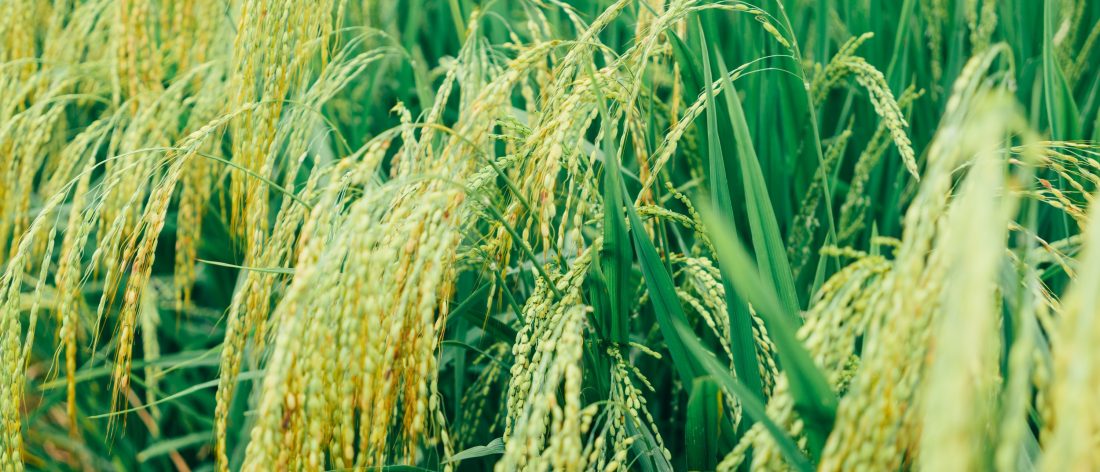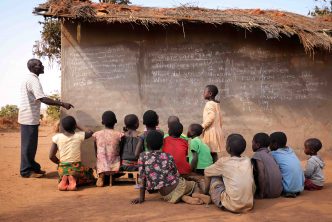Channelling Diaspora funds to Agriculture MSMEs
Emeka Okafor
As Nigeria grapples with declining Foreign Direct Investment the time has come to look outwardly but this time to Nigerians living abroad. The Nigeria Diaspora community has consistently remitted huge funds back home for years, it’s time to recognize and utilize the potential of this group as a source of investment especially in Agriculture.
Estimates from the Development Research Centre on Migration, Globalization, and Poverty based on Nigeria’s 2000 census indicate that 1,041,284 Nigerian nationals live abroad (IOM, 2009). This number contradicts a PWC report that estimates Nigeria’s diaspora population to be about 15 million (PWC, 2019). So, it’s safe to say that Nigeria’s Diaspora population is between 1,100,000 to 15 million.
As per the location of these migrants, a World Bank report stated that the United States and the United Kingdom account for more than 35 percent of the Nigeria Diaspora Population (IOM, 2011). It is difficult to determine which of these reports stated above is accurate as the government hasn’t released any official data on the Nigeria Diaspora community.
While it is difficult to obtain information on the skill level of the migrants, there are some clues that the inclination to emigrate is exceptionally high among the highly skilled (IOM, 2011). Estimations in 2000 showed that 10.7 percent of Nigeria’s highly skilled population emigrated abroad to the Organization for Economic Cooperation and Development (OECD) countries. In the United States and Europe, 83 percent and 46 percent respectively, of the Nigerian immigrant population are highly skilled (Docquier F and A. Marfouk, 2006).
One of Nigeria’s critical benefits from its Diaspora population is the money they send back home. These remittances are primarily personal transfers from migrants to their friends and families (United Nations, 2011). They tend to be well-targeted to the needs of the recipients.
The World Bank estimated that global remittances grew by 10 percent to $689 billion in 2018, with developing countries receiving 77 percent or $528 billion of the total inflows. India, China, Mexico, the Philippines, and Egypt are among the largest remittance recipients globally, collectively accounting for approximately 36 percent of total inflows. The officially recorded remittances are much lower than the actual combined remittances that occur through official and unofficial channels.
In 2017, Nigeria led the Continent in terms of remittance receipts but dropped to second place behind Egypt in 2018. Between 2016 to 2020, Nigeria received an average of $21 billion per year in official Diaspora remittances, representing about 11percent of the readjusted Country’s GDP (Trading Economics, 2020). The 2020 remittance dropped by 12 percent from the previous, and this was attributed to the coronavirus pandemic (COVID-19).
There is a myriad of advantages accruing from remittances to a developing country like Nigeria. The funds provide much-needed foreign exchange, especially when foreign receipts and Foreign Direct Investment is low to the receiving countries. Remittances also have counter-cyclical effects due to their frequency and magnitude. This has made remittances highly appealing for developing economies especially during tough times. Either for an altruistic reason or selfish reasons, economic crises often inspire migrants to remit more money to their home country. Another advantage is providing a bonus for a country’s financial growth: a stream of earnings for saving and leveraging through formal credit and other products. Lastly, remittance can be useful to recipients by providing them support funds to cover consumption, healthcare, and housing.
Table 1. 2017 Remittance inflow to Nigeria by country.
| Countries OF Destination | Percentage of 2017 people per country | 2017 migration nos by country of resident | Remittances ($ million) | GDP/ capita |
| United States | 21 | 273,000.00 | 6,191.00 | $59,928 |
| United Kingdom | 16 | 208,000.00 | 4,119.00 | $44,920 |
| Cameroun* | 9.2 | 119,600.00 | 2,510.00 | $3,722 |
| Niger | 7.6 | 98,800.00 | n/a | $1,019 |
| Ghana* | 5.3 | 68,900.00 | 874.00 | $4,502 |
| Italy | 4.6 | 59,800.00 | 1,047.00 | $40,924 |
| Benin Republic* | 3.8 | 49,400.00 | 652.00 | $2,276 |
| Spain | 2.7 | 35,100.00 | 771.00 | $39,037 |
| Canada** | 2.4 | 31,200.00 | 436.00 | $46,510 |
| Germany | 1.92 | 24,960.00 | 699.00 | $52,556 |
| Ireland | 1.811 | 23,543.00 | 473.00 | $76,745 |
| Australia** | 0.69 | 8,970.00 | $49,378 | |
Source: World Bank Remittance Report
** These countries see an influx of skilled and educated Nigerians who come via the target migration program for professional and educated persons.
* While these countries are captured as remittance sending corridors, it is worth noting that these countries host a large community of Nigerian businesses that trade between them and Nigeria. There is a possibility that these sums captured as remittances could be a business transaction.
A Commonwealth Survey Report indicated that remittances to Nigeria were sent for five primary purposes (Common Wealth, 2018), namely support family & friends, Investment in Social and Economic causes, improve personal financial circumstances, planning of individual retirement, and Political influence. According to this survey, 25 percent of the remittances were used for investment in real estate, agriculture, education, and start-ups.
Leveraging on the Diaspora
Recognizing Nigeria Diaspora’s strategic importance, the Federal Government of Nigeria established the Nigerians in Diaspora Commission (NIDCOM) to utilize this group’s human, financial and material resources for the socio-economic and technical development of Nigeria.
There has been increased conversation on leveraging the Diaspora as a source of cheap and affordable finance to businesses in countries of origin. In recent times, governments in countries such as Nigeria issued bonds and investment products targeted to their Diaspora population. While these efforts failed in some countries, so many other countries recorded success as such bonds were oversubscribed. Nigeria belongs to the latter group as her “Nigeria Diaspora Bond” issued in 2017 to raise $300 million was oversubscribed by 130{1c02100822988c48c7b0a484ab61ac3d7f398d67c2f66594d88b2db33072d9d9}. It’s not clear if these bonds were bought by individuals of Nigerian origin or Institutional investors as they were sold through retail banks abroad. Judging from this bond’s success and the remittance history of the Nigeria Diaspora population, there could be an opportunity to tap the Diaspora community as a source of cheap finance and investment in Nigeria. They are perfect for this role as they have a good understanding of the country, are sentimental towards her, and desire to contribute to the country’s development.
In late 2020, GIZ, a German development agency through its European Union sponsored program Nigeria Competitiveness Project (NICOP), commissioned Nextier to research the prospect of channeling funds from the Nigeria Diaspora community to selected agrobased micro small and medium enterprises (MSME). These MSMEs were in selected value chains of chili pepper, tomato, ginger, leather, and garment. With 34,000,000 hectares of arable land and a massively expanding livestock sector, Nigeria could become Sub-Saharan Africa’s food basket. This goal will require the right policy, economic and security conditions, and investment.
Nextier’s research showed that the Nigeria Diaspora community is interested in investing in Nigeria’s agrobased businesses. There has been growing Diaspora involvement with agro-based crowdsourcing platforms such as Farmcrowdy and Thriveagric. While these platforms have achieved relative success, there remains a lot to be explored in the agriculture sector. Agricultural businesses can provide competitive returns compared to other investment options such as bonds, mutual funds, real estate, and stock exchange. The selected GIZ NICOP value chain MSMEs have a projected return between 20 percent -59 percent per cycle of four to eleven months.
These MSMEs require funds to expand their lands, purchase machinery and improved seedlings, expand processing and storage capacity, and learn and introduce efficient farm practices. In countries such as Somalia and the Philippines, Diaspora community funds are channelled to Agrobased businesses through the Somali Agro-Food Fund and the Atikha Initiative respectively. With technical support from donor agencies, these businesses were screened, organised, prepared, and marketed to the Diaspora community for investment. These two initiatives experienced massive growth and success in terms of investment from the Diaspora community, yield increase from the farms, return on investment, and employment increase.
These examples show that it is possible and profitable to leverage the Diaspora community as a source of investment funds, giving the right arrangement and support.
Groups like Smallholder and Agri-SME Finance and Investment Network (SAFIN) and International Fund for Agricultural Development (IFAD) are working with Nigeria agriculture MSMEs to become viable investment vehicles. These organizations have developed partnerships with other development agencies to select, organise and market these businesses to potential investors. Matching these MSMEs to willing Diaspora investors should be the next step. In addition, the Nigerian Investment Promotion Commission (NIPC), through its Greenfield and Brownfield Investment opportunities, is marketing various agrobased businesses to potential investors Challenges With the Covid-19 pandemic and its negative effect on the global economy, it is expected that remittances and inflows will decline for the foreseeable future, as seen in the 2020 remittance figures. However, as vaccination against the virus spreads further, we expect to see improved economic activity globally, and invariably remittances will begin to hit and surpass record levels.
The major challenge with channelling funds from the Nigeria Diaspora community into these agricultural businesses are lack of trust, currency fluctuation, inflation, and insecurity in the agriculture belt.
Several diaspora Nigerians identified a lack of trust as a deterrent to investing back home. They are unsure who to trust as they have often lost monies to scams and failed business investments. Nextier believes that international development agencies’ involvement in this process will provide credibility and boost the Nigerian Diaspora community’s trust and confidence in an agriculture investment initiative or any investment for that matter.
Currency fluctuations and inflation are challenging to overcome as they result from the federal government’s macro-economic and monetary policies. Nigerians in Diaspora often compare their investments in Nigeria to what they obtain in their countries of residence. When they do this, they realize that at maturity, these investments in Nigeria are often of lesser value than their initial principal when converted to the currency of their country of residence. With a clear economic minded leadership, these issues can be managed. For the insecurity challenges, investment in agribusinesses located in less violent prone areas should be prioritized.
In conclusion, harnessing the Nigeria Diaspora community as a source of affordable finance for agricultural businesses is feasible as their interest includes and goes beyond financial returns. The government and its agencies such as NIDCOM and NIPC should pursue an all-inclusive pragmatic effort in partnership with development partners. This will encourage and incentivize the Diaspora community to invest in selected businesses in Nigeria, especially agriculture. This effort will go a long way to improving food security and employment opportunities while ensuring investment return for these Diaspora investors.







